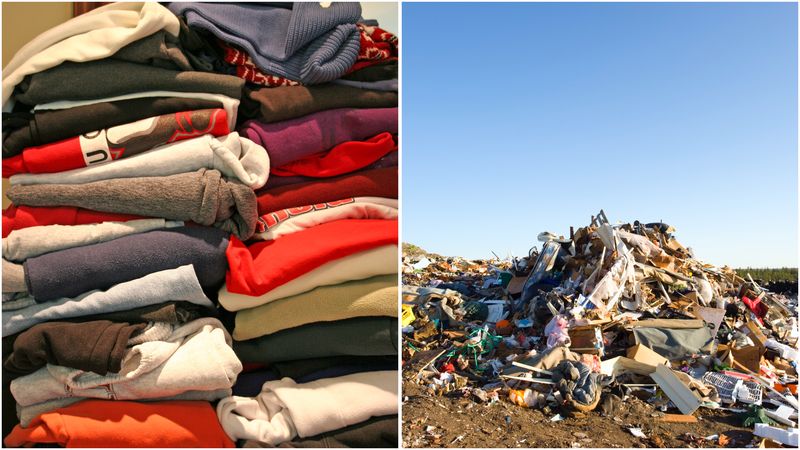Australian charities are contributing to a large chunk of landfill pollution in the country because of donations that can’t be used.
Things like soiled clothing, mattresses and old electrical appliances are being donated to stores like the Salvation Army, St Vincent De Paul and Red Cross with good intentions, but ultimately thrown away because they are in poor condition and aren’t suitable.
According to the National Association of Charitable Recycling Organisations (NACRO), over a million tonnes of goods are donated to charities in Australia.
While donations redirect over 588,000 tonnes of clothing and textiles from landfill per year through reuse and recycling, charities are forced to throw away more than 60,000 tonnes of unusable donations which ultimately end up in landfill.
“The best advice is that if you wouldn’t give it to a friend, don’t give it to a charity,” NACRO chief Omer Soker told 9News
The non-usable donations directly contribute to the 88 kilotonnes of textile waste that Australia produces each year.
Mr Soker said 10,000 tonnes of clothing waste is thrown out by op shops per year, with the rest being made up of kitchenware, furniture, toys, electrical goods and mattresses.
People are often confused when they donate, thinking the items go directly to the needy, but in fact, they are commonly sold to everyday shoppers looking for a bargain or aiming to be environmentally conscious.
When something is donated that is soiled or damaged, it is similar to any other retail store and can’t be sold in poor condition.
“Charities spend $13 million a year on waste management costs due to donations that can’t be sold, used or recycled,” Mr Soker said.
“That’s $13 million wasted on waste, when it could have gone towards Australians in need.”
NACRO is calling on State Governments to invest in minimising this waste by investing $1.2 million, which will enable better education, solve dumping issues and make sure charitable funding goes towards social welfare programs to assist the three million Australians living below the poverty line.
“When you look at it as just $600,000 between each state government, it’s a very small request,” Mr Soker said.


